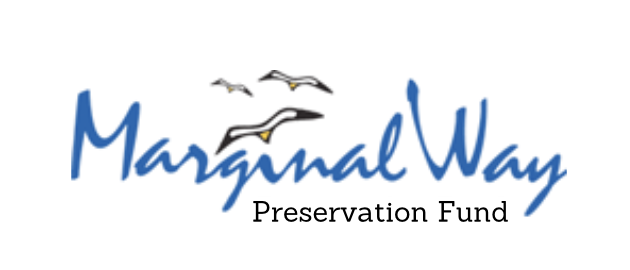
Planned Giving
Individuals who include the Marginal Way Preservation Fund in their estate planning help to create a legacy of support. In doing so, you become a member of the Marginal Way Endowment Society.
If you are considering the Marginal Way Preservation Fund in your will or trust, please let us know so that we may recognize your generosity.
Benefits:
Listed in top donor list
Preserving the Marginal Way
Bequests *
* Leaving a bequest to the Marginal Way Preservation Fund allows you to make a substantial contribution without diminishing the assets available to you during your lifetime. Since bequests are deductible from your taxable estate, significant tax savings are possible. A bequest can be a simple dollar amount, a percentage of your estate or a designation of specific property.
Frequently Asked Questions
-
In exchange for a gift of money or securities, the Marginal Way Preservation Fund can pay you and/or your loved one a fixed amount annually for the remainder of your life. A portion of this income is not taxed, and you receive a charitable deduction for part of your gift, as calculated with IRS tables.
-
You can use an irrevocable trust to provide yourself and/or a loved one with fixed annual income, or an income that varies with the value of the trust. Part of your gift qualifies for an income tax deduction, as calcuated with IRS tables. Upon the death of the last income beneficiary, the remainder of the trust is distributed to charity.
-
You can support the Marginal Way Preservation Fund for a term of years, or for the life of the individual, by creating a Charitable Lead Trust. Income will be paid to the Marginal Way Preservation Fund and/or the charities of your choice each year during the trust term. When the trust terminates, the assets in the trust revert to you or to individuals you want to benefit.
-
When you donate a life insurance policy to the Marginal Way Preservation Fund, the cash surrender value of the policy, or the cost of a replacement policy, is deductible as a charitable contribution. If you continue to pay premiums after your gift is made, those premiums are also deductible.
-
Naming the Marginal Way Preservation Fund as a beneficiary of your retirement plan is one of the most cost-effective gifts you can make because all income and estate taxes are avoided. Retirement assets are typically one of the largest sources of wealth in a person’s portfolio.
-
Upon the death of a friend or family member, you may add to any obituary notice that the family wants “in lieu of flowers” for donations to be made to the Marginal Way Preservation Fund, PO Box 1455, Ogunquit, Maine 03907.
The Benefits of Contributing today
When you make a donation to the Marginal Way Preservation Fund, you receive tax benefits for your outright contribution and the satisfaction of supporting our mission to protect and preserve the Marginal Way for future generations.
We would be happy to further discuss with you the advantages of planned gifts. Please contact Board Member and Investment Advisor, Charlie Hindmarsh, at 207.646.2750 for additional gift ideas and related benefits.
IRS Documentation
For any cash contribution, you will receive a written acknowledgement of your contribution from the Marginal Way Preservation Fund. This documentation will include the amount of cash (if any) contributed, whether we received any goods or services in exchange for the gift, and a description of any goods or services rendered.
For gifts by check of less than $250, a copy of the check is sufficient tax documentation. For a larger gift, we will send a written receipt.
For non-cash contributions, or in-kind donations, the records you keep for the required IRS documentation depend on whether your deduction is one of the following:
Less than $250
$250-$500
$501 – $5,000
More than $5,000
At a minimum, the Marginal Way Preservation Fund will send a written letter documenting a description of the property, date and location. Appraisals are required when your gift of property is greater than $5,000.
Please consult your tax advisor or attorney for specific tax planning advice.
